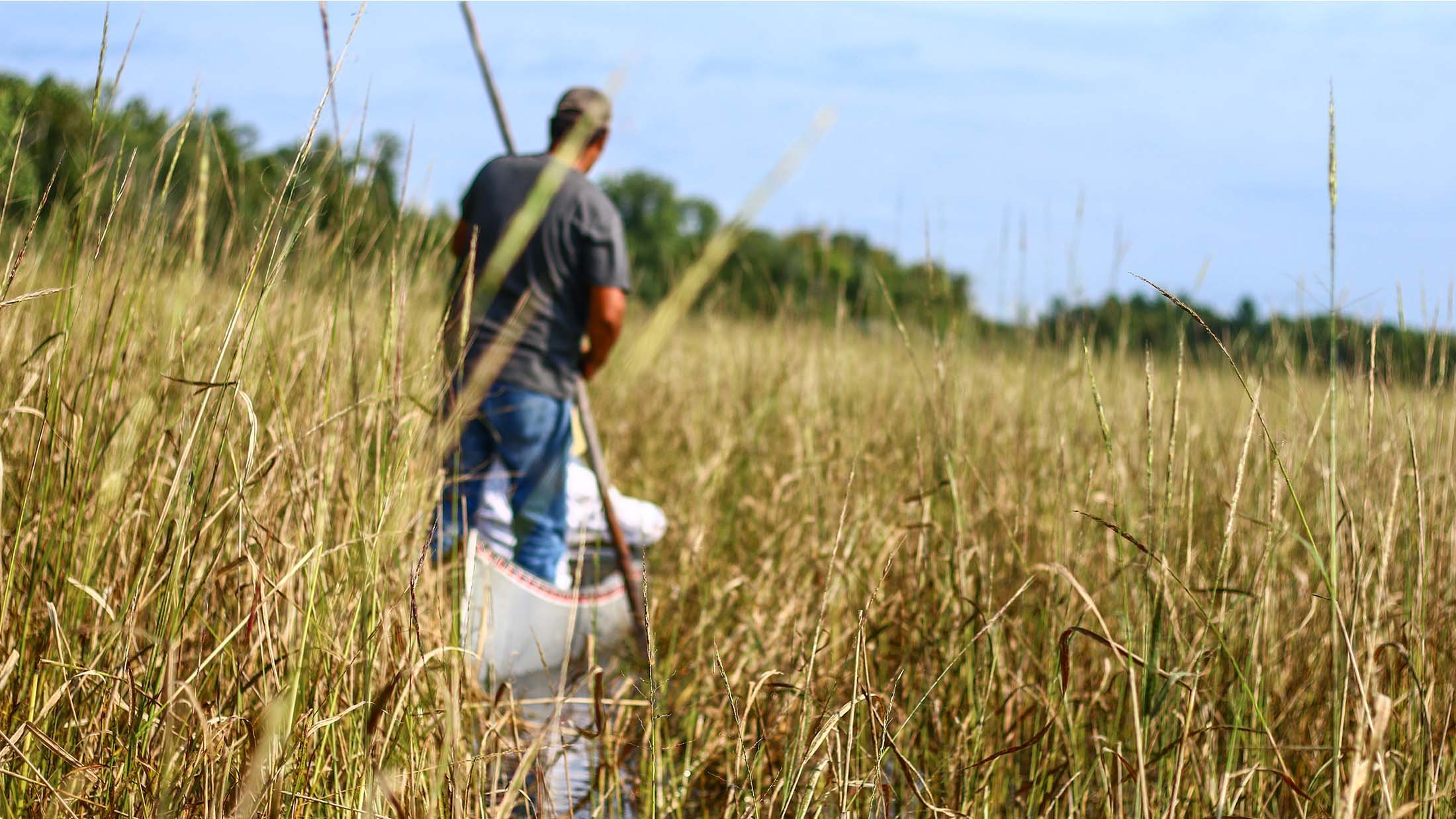
Recognizing the Inherent Rights of Manoomin/Psíŋ (Wild Rice)
Bringing the Rights of Mother Earth Movement to the Minnesota Legislature
What is wild rice and why is it important?
Known as manoomin to Anishinaabeg people and psíŋ to the Lakota and Dakota, wild rice is crucial to the health of people and ecosystems in Minnesota. Importantly, manoomin/psíŋ is central to Anishinaabeg and Dakota spirituality, cultural, and nutrition, as well as their economies. As the state grain of Minnesota, wild rice is also core to the Minnesota economy and environment, not just because it’s an incredibly delicious source of nutrition that requires no fertilizers to grow, but also because it is so central to Minnesota’s biodiversity – more than 17 species of wildlife listed by the Minnesota Department of Natural Resources as “species of greatest conservation need” use wild rice lakes as habitat for reproduction or foraging.
Now is the time to protect manoomin/psíŋ. According to the Governor’s Wild Rice Task Force, historical data shows the abundance of wild rice has decreased in Minnesota and is no longer abundant in southern Minnesota. Manoomin/psíŋ faces many threats from climate change, invasive species, pollution, and genetically engineered organisms. Particularly, sulfate byproducts from current and proposed sulfide-ore mines like Polymet and Talon can leach into the fresh waters in which wild rice grows, not just negatively impacting the rice itself, but also the plant and animal life that depend on this grain – including us!
A Legislative Resolution Recognizing the “Rights of Manoomin/Psin” in Minnesota
On April 6th, 2024 Representative Jamie Becker-Finn introduced a resolution into the Minnesota Legislature co-authored by Reps. Kozlowski and Keeler that would recognize the rights of wild rice or manoomin/psíŋ to exist, flourish, regenerate, and evolve.
The resolution was brought forward as part of a collaborative effort brought forward by the Rise & Repair Alliance, the 11 Federally recognized tribes in Minnesota, the Sandy Lake Band of Ojibwe and the Niibi Center’s Institute on the Rights of Nature.
Help Move this Legislation Forward!
View and Share this Toolkit
Submit this Action Alert to Contact Your Elected Officials
University of Minnesota GCC 3031 Project: The Rights of Manoomin/Psíŋ
Students from UMN GCC 3031 created a video and micro-site encouraging advocacy around the Rights of Manoomin/Psíŋ Resolution introduced in the MN Legislature.
GCC is “The Global Climate Challenge: Creating an Empowered Movement for Change”. The project was supported by a grant through the UMN Institute on the Environment.
